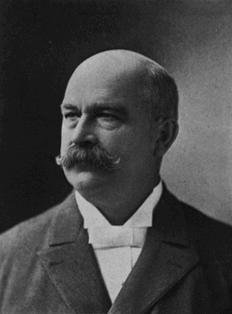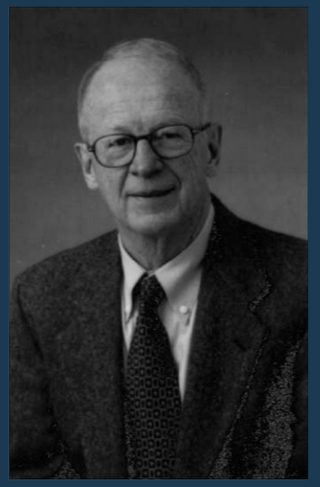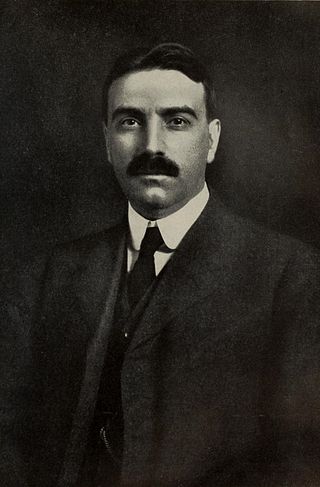Related Research Articles
Transcendentalism is a philosophical, spiritual, and literary movement that developed in the late 1820s and 1830s in the New England region of the United States. A core belief is in the inherent goodness of people and nature, and while society and its institutions have corrupted the purity of the individual, people are at their best when truly "self-reliant" and independent. Transcendentalists saw divine experience inherent in the everyday, rather than believing in a distant heaven. Transcendentalists saw physical and spiritual phenomena as part of dynamic processes rather than discrete entities.

Francis Parker Yockey was an American fascist and pan-Europeanist ideologue. A lawyer, he is known for his neo-Spenglerian book Imperium: The Philosophy of History and Politics, published in 1948 under the pen name Ulick Varange, which was dedicated to Adolf Hitler and called for a neo-Nazi European empire.
John David Caputo is an American philosopher who is the Thomas J. Watson Professor of Religion Emeritus at Syracuse University and the David R. Cook Professor of Philosophy Emeritus at Villanova University. Caputo is a major figure associated with postmodern Christianity and continental philosophy of religion, as well as the founder of the theological movement known as weak theology. Much of Caputo's work focuses on hermeneutics, phenomenology, deconstruction and theology.

Willis Allison Carto was an American far-right political activist. He described himself as a Jeffersonian and a populist, but was primarily known for his promotion of antisemitic conspiracy theories and Holocaust denial.

William Dudley Pelley was an American fascist leader, occultist, spiritualist and writer.
Borden Parker Bowne was an American Christian philosopher, Methodist minister and theologian. He was nominated for the Nobel Prize in Literature nine times.
Frederick Charles Beiser is an American philosopher who is professor of philosophy at Syracuse University. He is one of the leading English-language scholars of German idealism. In addition to his writings on German idealism, Beiser has also written on the German Romantics and 19th-century British philosophy. He received a Guggenheim Fellowship for his research in 1994, and was awarded the Order of Merit of the Federal Republic of Germany in 2015.
Stephen H. Webb was a theologian and philosopher of religion.

Francis Wayland Parker was a pioneer of the progressive school movement in the United States. He believed that education should include the complete development of an individual — mental, physical, and moral. John Dewey called him the "father of progressive education." He worked to create curriculum that centered on the whole child and a strong language background. He was against standardization, isolated drill and rote learning. He helped to show that education was not just about cramming information into students' minds, but about teaching students to think for themselves and become independent people.
Henry Babcock Veatch Jr. was an American philosopher.
Francis John McConnell was an American social reformer and a bishop in the Methodist Episcopal Church, elected in 1912.
George Mish Marsden is an American historian who has written extensively on the interaction between Christianity and American culture, particularly on Christianity in American higher education and on American evangelicalism. He is best known for his award-winning biography of the New England clergyman Jonathan Edwards, a prominent theologian of Colonial America.

William Leonard Rowe was a professor of philosophy at Purdue University who specialized in the philosophy of religion. His work played a leading role in the "remarkable revival of analytic philosophy of religion since the 1970s". He was noted for his formulation of the evidential argument from evil.

James M. Edie was an American philosopher.
John Daniel Wild was a twentieth-century American philosopher. Wild began his philosophical career as an empiricist and realist but became an important proponent of existentialism and phenomenology in the United States.

Edwin Francis Gay was an American economist, Professor of Economic History and first Dean of the Harvard Business School.
Carleton Wolsey Washburne was an American educator and education reformer. He served as the superintendent of schools in Winnetka, Illinois, United States, from 1919 to 1943 and is most notably associated with the Winnetka Plan that he developed for his district.

Aaron W. Hughes is a Canadian academic, author, and professor of religious studies. He holds the Dean's Professor of the Humanities and the Philip S. Bernstein Professor of Religious Studies in the department of religion and classics at the University of Rochester. Previously, he was the Gordon and Gretchen Gross Professor of Jewish Studies at the University at Buffalo, State University of New York from 2009 to 2012, and, from 2001 to 2009, professor of religious studies at the University of Calgary in Alberta, Canada.
Francis Edward Coughlin was an American football player and coach.
Linda Dégh was a folklorist and professor of Folklore & Ethnomusicology at Indiana University, USA.
References
- ↑ Paskow, Alan; Sugden, Valerie Parker; Parker, Cynthia; McArthur, Bob; Cohen, Dan; Rowe, Bill; Schrag, Calvin; Kosman, Aryeh; Schambelan, Bo; Briod, Marc; Martin, Bob (2007). "Francis H. Parker, 1920-2004". Proceedings and Addresses of the American Philosophical Association. 81 (2): 176–179. ISSN 0065-972X. JSTOR 27654010.